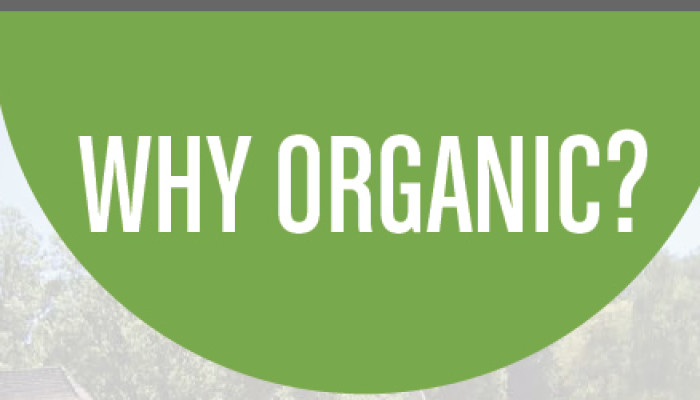Organic living is a healthy way of life, which is why so many people all over the world are opting for it. While going organic may appear to be a more expensive way of life at first. The multiple benefits it can give to the environment, your yard, and your family may actually save you money in the long run.
Going organic provides a lot of benefits, including helping to protect the environment and offering emotional. And physical benefits to your family, such as a reduced chance of disease.
Starting with your yard and garden is a great way to ease into an organic way of life.
Organic farming is based on the belief that “nature knows best.” The organic gardener starts with the dirt and works their way up to their lawn and garden, nourishing the rather than the plants, giving their lawn and garden a fresh lease on life. If you reject the world of poisonous chemical pesticides in favour of loving and nourishing the land with natural methods. Your yard will thrive natural approaches and systems. It will yield healthier grass, flowers, and vegetables with significantly less maintenance.
Those who support the organic movement aspire to live a life that is cleaner, healthier, and more environmentally conscious.
Soil & Food Benefits of Going Organic
Organic gardeners and farmers are passionate about their land. They recognise that if they do not abuse the land, it will provide for them and their families for many years.
Organic gardening can prevent topsoil loss, toxic runoff, water pollution, soil contamination and poisoning. As well as the death of beneficial insects, birds, critters, and other soil organisms. There are no pesticide, herbicide, or fungicide residues on food. And there are no synthetic fertilizer residues in plants or vegetables.
Organic farming produces food with stronger, more authentic flavours as well as higher vitamin and mineral content. According to HayFarmGuy, increased organic matter in the soil reduces erosion, conserves water, and feeds plants in the way they require.
Organic Produce Provides More Nutrients
Because of the nutrients and trace minerals found in well-managed, chemical-free soil. Organic foods have more vitamins and minerals than conventionally produced meals.
The Soil Association compared the vitamin and mineral levels of organic and conventional foods vs. conventionally cultivated food to back up this claim. “On average, organic food includes higher quantities of Vitamin C. And important minerals such as calcium, magnesium, iron, and chromium,” according to the findings.
Organic approaches are the best way to ensure a “healthy” lawn and garden.
Going Organic Has Mental and Physical Health Benefits
Apart from the obvious physical health benefits of organic eating, there are significant mental health benefits as well. Working with your garden’s soil and plants can be immensely introspective and relaxing. To the point where organic gardening has made its way into the mental health industry profession as Horticultural Therapy.
Horticulture Therapy is a practice that employs plants and horticultural activities to assist individuals in improving their social, educational, psychological. And physical well-being in order to improve their body, mind, and soul.
This strategy goes hand-in-hand with organic gardening ideals, which reject chemicals in favour of hands-on, healthy, and holistic garden maintenance.
Going Organic Has Money-Saving Advantages
Organic product prices are a major obstacle for many considering switching to organic.
The price difference between “organically” manufactured goods and “non-organically” created goods is mostly owing to their varied production costs. Because mass-produced goods are cheaper to manufacture, they are also cheaper to buy. The higher price of organic goods is due to the significantly higher cost of production and distribution.
Despite the increased costs of individual organic products, organic farming can save you money in the long run.
In theory, improving the health of the soil in which your plants grow should result in a larger crop and years of all-natural food production. As a consequence, you’ll spend less money. At the store on food and supplies in the long run to aid a neglected garden. Organic gardeners follow the philosophy of ‘feeding the soil, not the plant,’ which proponents say is more environmentally friendly. This method allows you to cultivate your own nutrient-dense vegetables without the use of pesticides in your soil.
Composting is the most cost-effective way to obtain organic materials. Composting is defined as the “use of decomposed organic residues as a soil amendment. And seed starting medium in organic gardening, which lowers landfill trash by recycling your chemical-free grass trimmings and food scraps.”
Composting is a simple procedure that uses “waste” from your lawn and kitchen to return nutrients to the soil and the organisms that live in it. Improving the health and nutrition of your garden.
Composting also aids in the reduction of garbage that gets up in the local landfill: “Organic waste from our yards or kitchens takes up one-third of landfill space.” Landfills are rapidly filling up, and finding new locations is getting increasingly difficult.
Composting is similar to recycling, however instead of cans, glass, and newspapers, you’re recycling your leaves, grass. And food waste and returning them to the soil in a beneficial manner.
Suggested Read: Swachhbharat
